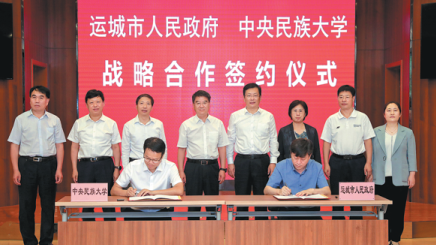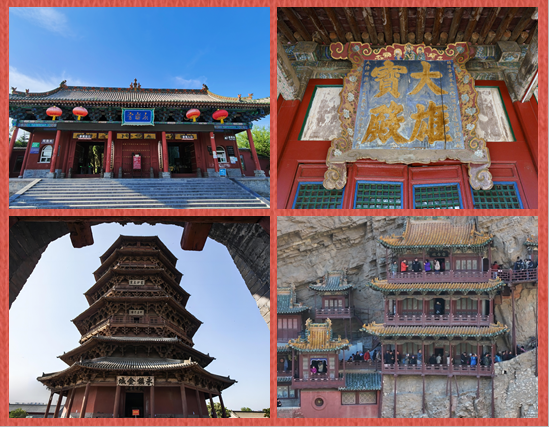Yuncheng sets sights on nation's best talents

The Yuncheng delegation signs a cooperative agreement with Beijing-based Minzu University of China. [Photo by Jin Yumin for China Daily]
Realizing the importance of well-educated and well-trained professionals in local development, authorities in many regions of China are competing for talent nationwide.
This is no exception for Yuncheng, a city in the southwest of Shanxi province. In late June, Ding Xiaoqiang, secretary of the Yuncheng committee of the Communist Party of China, headed a delegation to Beijing, trying to attract talents and technologies from universities.
The delegation visited the prestigious Tsinghua University on June 27. In talks with the school's leaders, Ding said he hopes to establish a long-term partnership with Tsinghua, especially in the fields of talent training and technology transfer.
The delegation visited other universities including Minzu University of China and the National Academy of Chinese Theatre Arts. Several agreements were signed between the city and the universities during the trip.
Before this tour, Yuncheng's officials visited universities in the Yangtze River Delta region in late March. They signed talent attraction and technology transfer agreements with schools including Tongji University and Zhejiang University.
On April 21, Yuncheng Mayor Chu Xianghao was at Taiyuan University of Technology in the Shanxi provincial capital, hosting a job fair to recruit graduates.
To date, Yuncheng has organized a total of 210 similar tours this year, signing 132 cooperative agreements with universities and research institutions nationwide.
To the local officials' delight, the city's enterprises and institutions have signed employment contracts with a total of 434 students from the universities.
Local officials said a "brain hunt" is only one part of Yuncheng's talent-attraction campaign. It puts an even greater emphasis on retaining the professionals.
One innovative part of Yuncheng's talent strategy is to establish research and development facilities in China's developed cities. This ensures professionals can make greater contributions to Yuncheng by making the best use of resources in the city where they are based. It also allows them to enjoy the convenience of living in big cities.
One such facility is a research academy founded by Yuncheng-based Yabao Pharmaceutical in Beijing. This facility is home to a research team of more than 130 members who all have master's or PhD degrees, headed by Gao Fu, a member of the Chinese Academy of Sciences.
Zhang Haiying contributed to this story.



